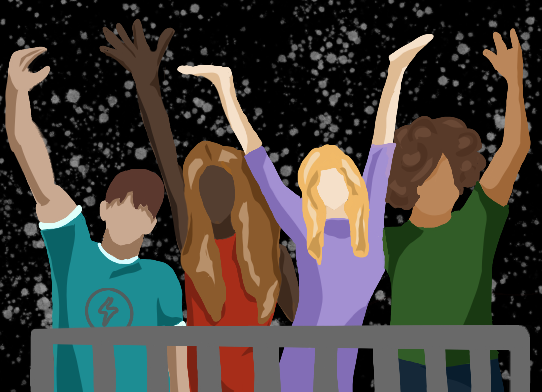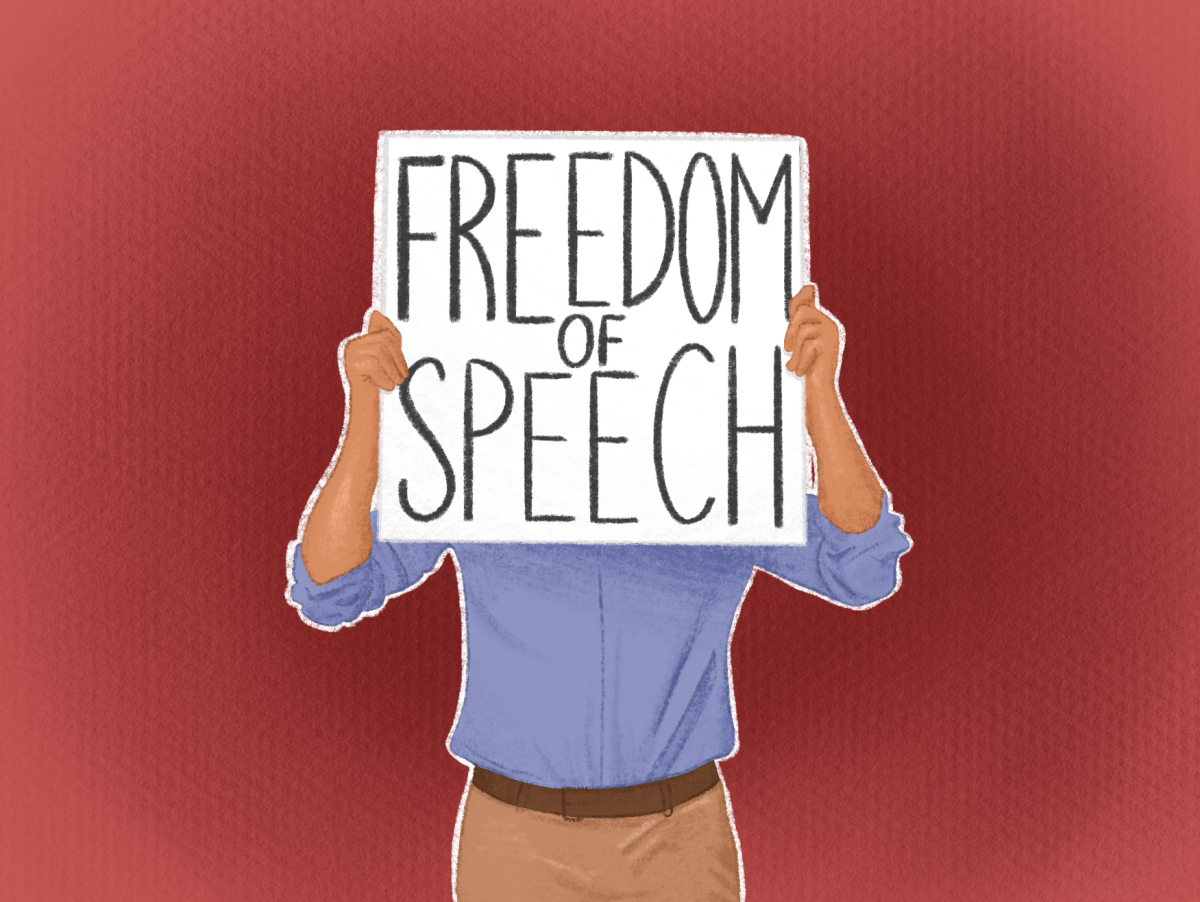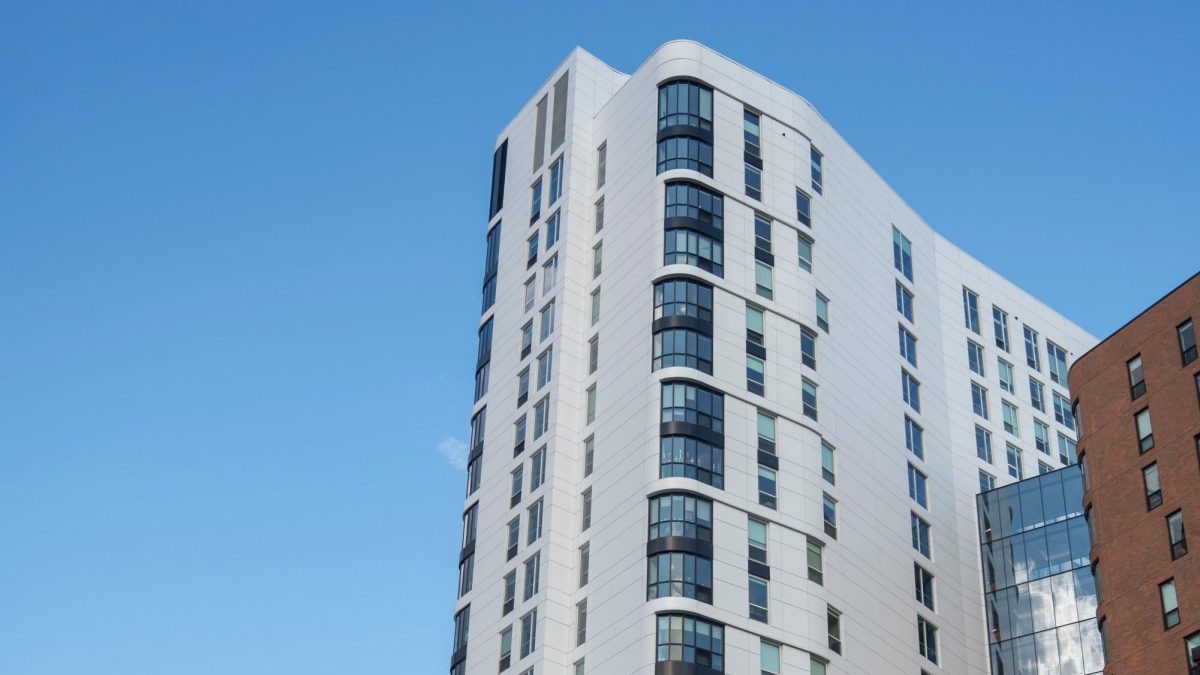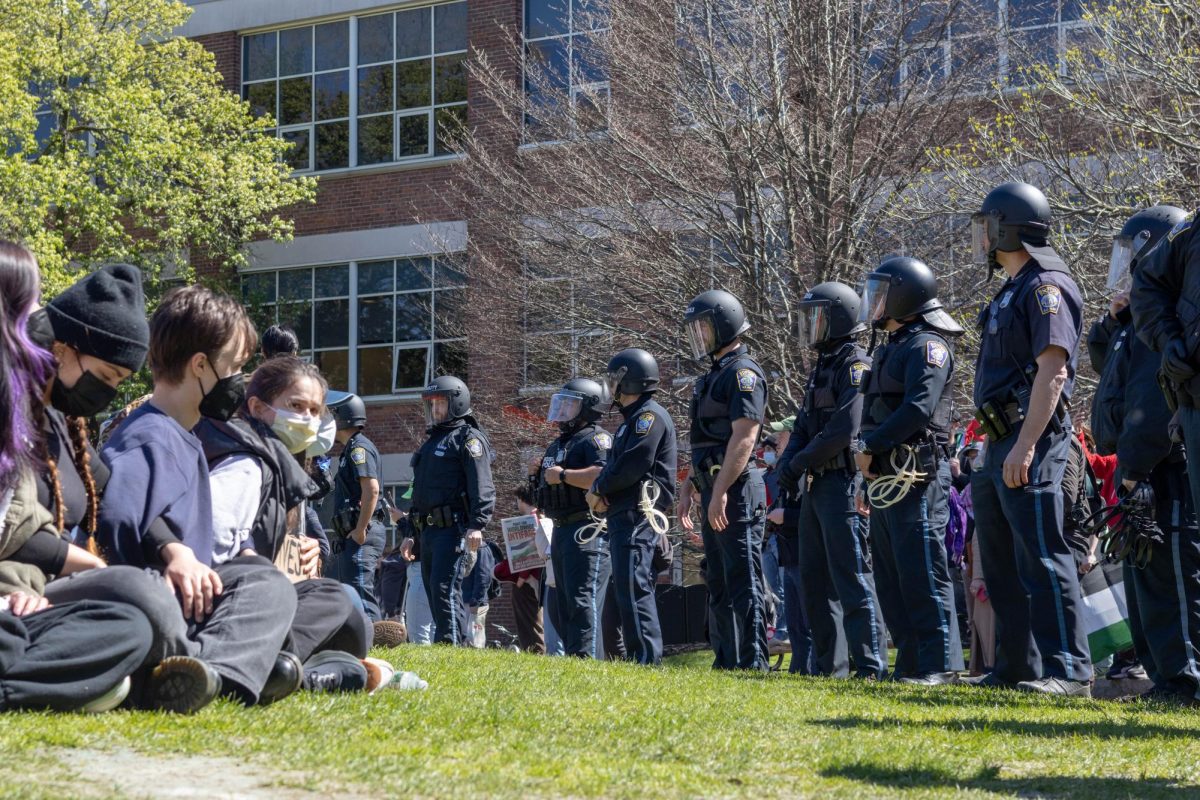In early 2022, a viral TikTok showed fans at Tyler, the Creator’s “Call Me If You Get Lost” tour playing duck-duck-goose during the set of the opener, Vince Staples. This is entitled behavior, and we need to do better as a community if we truly care about music.
This first scenario was an affront to the artist, who was expecting to perform for people who care about his music, not to provide ambiance while they play games and sit in a circle. There have always been rude people in public places and there always will be, but there’s been an uptick in recent memory.
Members of the service industry have spoken up about this rise in rudeness, especially coming out of the pandemic. I’ve felt a similar shift in the live music scene. Boston is a lovely musical city that has granted me access to a plethora of opportunities to watch talented people perform. I’ve gotten to experience more shows this past year than any other, like Clairo, Aminé, Steve Lacy and COIN, which I am so grateful for. From basements in Allston to 1,000-plus capacity venues in the city like House of Blues and Roadrunner, I’ve noticed that not everyone feels the same when my favorite artist is performing live. I’ve had too many experiences where fellow concertgoers acted like a bunch of hooligans and made the show unpleasant. I have a long list of grievances, and hopefully, after I address them, we can all become better fans.
This entitled behavior stems from the mindset of “I paid for this concert! I’m gonna do what I want!” I heard a fan yell this at the person in front of her during a bbno$ show when she asked the fan to stop shoving her. To some degree, I think we all feel that if we pay for an experience, then we better have a good time. This is true! But in order for everyone to enjoy themselves, your pleasure can’t come at the expense of other people’s discomfort.
Do not raise your phone for the entire concert. Do not push to the front for your favorite songs. Stop talking over the opening artist. And if you are over six feet tall, do not tap average-height me on the shoulder and ask to stand in front of me because I “won’t complain as much as the short girls that are behind me.” People holding up their phones and blocking my view to record the entirety of a song is another major ick I have. I’ve gotten to the point where I only take mine out for a picture in between songs or a snippet of 15 seconds at most. I realized that I’ll never be able to capture what I feel and see in that moment on my phone. If I really want to relive a performance, I’ll find a video online that someone with a steady hand recorded from the mezzanine. That guy will always be there for you.
I like to check on the people around me, both for their safety and mine. You might see someone looking like they’re about to pass out, or they lost a wallet and need the crowd to make space. On multiple occasions, I’ve helped someone find their other shoe in the aftermath of a mosh pit. Specifically during the Steve Lacy show I attended at the Roadrunner, 11 people fainted and the crowd needed to make space for EMTs each time. We must always be on alert for our fellow fans, no matter how mellow the music.
I’ve found that the more aggressive or alternative the music, the kinder the fans tend to be. If you ever attend a DIY music show in an Allston basement, you’ll find a community unlike any other: one that’s inclusive, creative and where the person standing next to you is now your friend. The musicians are talented, the support beams are questionable, admission is cheap and you will have an unparalleled concert experience. Moreover, you can practice being an empathetic concertgoer at the next free show in AfterHours, our on-campus concert venue inside of a Starbucks. Here, you’ll be surrounded by your community of peers, which should motivate the audience members to treat each other with respect.
I should also add that I don’t think rowdy concertgoers are bad people. We’re living in a moment that permits people to crave attention all the time in order to feel gratification, even while in public or at a show, where the attention should never be on you. We’re not conditioned to be empathetic. And while we can only control ourselves, I hope that this inspires you to be a more appreciative fan at your next show. In sum, be kind to others and be kind to yourself, because if you aren’t, that’s really embarrassing.
Jared Haime is a third-year political science and international affairs combined major. He can be reached at haime.j@northeastern.edu.












